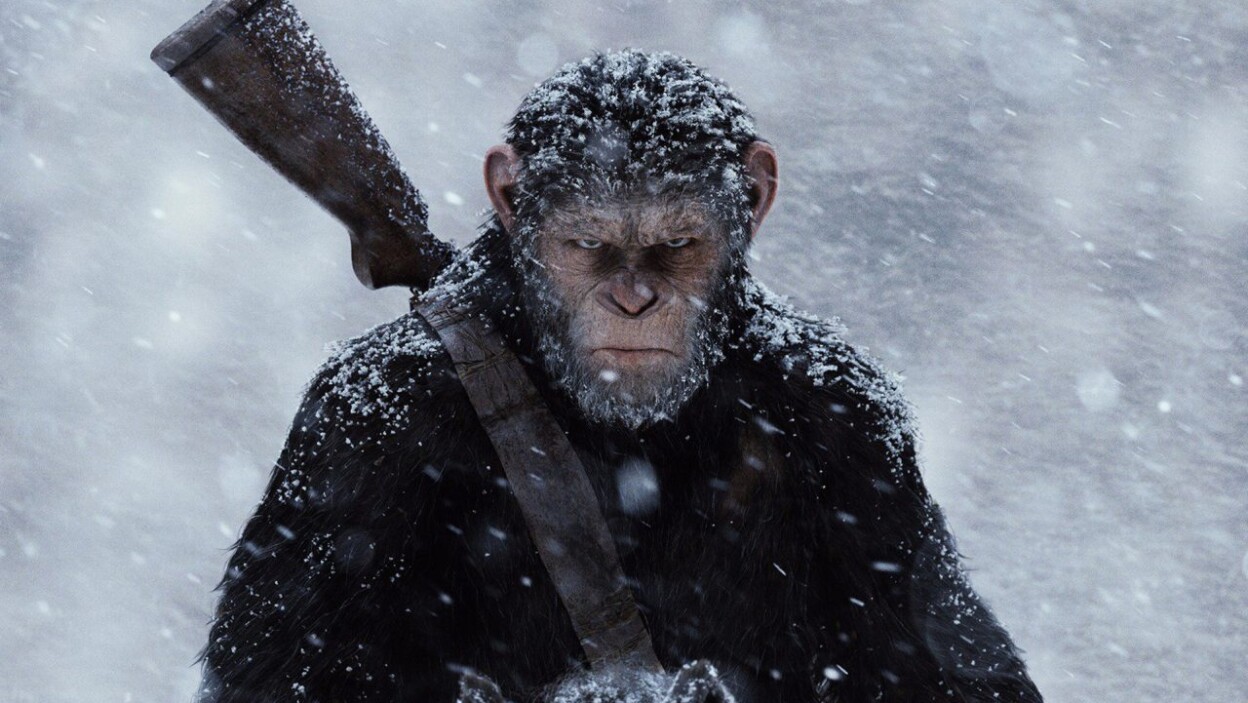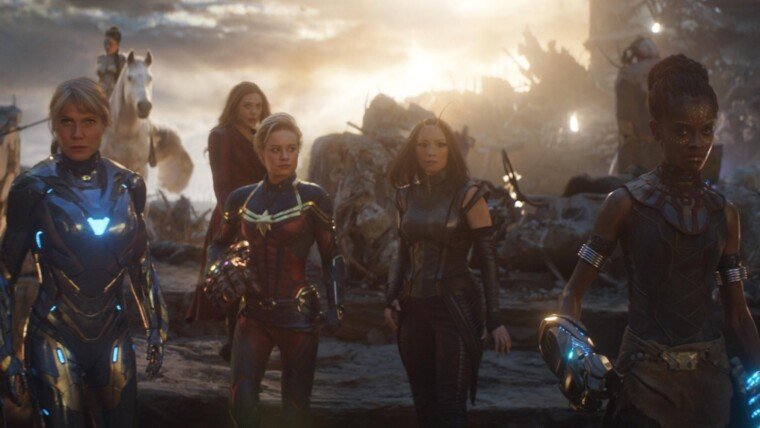I knew him not and yet I did. For 7 years and 3 films, he made his struggle, his triumph and his life mine. A life that by all means should have been alien to me by either the merit of his fictitious nature and by our intrinsic natural differences. And yet it did not and by the end of his saga, when he passed peacefully from life to legend, an earnest loss I felt. At the risk of being true to me, and sounding awfully melodramatic, the ape Caesar’s life shall ever be a part of mine. That is the power of a truly well-crafted and powerful character arc. Its ability to both inspire personal parasocial connection and create cultural significance can be all the difference between an average piece of fiction and a media phenomenon.

A decade after Tim Burton’s disastrous attempt at injecting life into the aged Planet of the Apes property, Fox decided it was time once again for a reboot. This time, however, the films would mostly follow the perspective of the apes over the humans’. 2011’s Rise of the Planet of the Apes (quite a mouthful so get used to it) was a financial success, making back nearly five times its budget and getting rave reviews from critics and moviegoers alike. The first film wisely chose to omit the more fantastical elements of its forerunners, namely the space ape and astronaut storyline, for a more grounded world. But beyond the marketing of realistically CGI-rendered apes and primate-powered action that the film promised, it also has a lot more to say about power and freedom. Those more historically astute could see the parallels drawn between power struggles of the oppressor-oppressed relationship of the film’s apes that mirrored in our reality. No doubt western colonial oppression and the treatment of African-American slaves come to mind.
Another discourse that can be seen in the film, one of rather a Promethean theme, is how knowledge relates to power. In case you didn’t know, the apes’ human-level intelligence in the films is more a product of intelligent design and rebellion, than mere Darwinian evolution. The epiphany of their bondage is the catalyst to their rebellion against the powers that be. As French philosopher and social theorist once said: “Knowledge is not for knowing: knowledge is for cutting.” And that’s precisely what these suppressed simians do, they use their newly gained intellects to find their freedom.
Pretty profound if you ask me but that’s just the tip of the iceberg. It is director Matt Reeves that takes this franchise to whole new heights, further expanding the history and mythos of the apes along with the themes of the first film. We witnessed an entire civilization crafted before us. Frankly, it can be overwhelming to discuss this groundbreaking film series in its entirety, so I’ll be focusing on one particular character today, Caeser, the one who made it all possible. We’ll be tracing back his internal history, relationships and motivation to paint a picture behind the leader of this brave, new planet of the apes. He is revolutionary, patriarch, warrior, ruler and given time, a messiah. This is Caesar.
An Unusual Upbringing

It is often said that our childhood experiences and growing developments would significantly mould the adults we will grow up to be. In the case of great men, or apes, this rings especially true. Imagine how different the world have been if Hitler grew up in a loving home or never failed art school? He might not have harboured anti-Semitic views or committed the infamous atrocities we have come to vilify him for today. Therefore understanding Caesar’s background could provide us with useful insight into future actions.
He is the son of Bright Eyes, a female chimp who had been exposed to the experimental cure for Alzheimer’s known as ALZ-112, and an unknown male chimpanzee. His mother had given birth to him secretly in the research facility known as Gen-Sys Laboratories. When scientist had attempted to escort Bright Eyes out of her cage she attacked her handlers, out of fear for her newborn, and attempted to escape from the labs. She was shot to death but her son was spared. He was soon adopted by scientist Will Rodman who saw that Caesar was more than a mere animal, inheriting his mother’s superior intelligence as a product of experimentation.

He was also treated as a member of the Rodman household, going out on trips with Will and his father to the Muir Woods. His privileged childhood would leave a positive impression of Man in the young ape’s mind which would later come to affect his treatment of humans when rises to positions of power. But there is also a darker side to Caesar’s young adult years. After violently defending his dementia-ridden adoptive grandfather from an angry neighbour, he was captured and placed in an animal shelter. There he was subjected to cramped living conditions and abusive treatment at the hands of his supposed caretakers. But his greatest agony would come at the hands of Will, as he sadly informs Caesar that he cannot take him home. From that point forward, Caesar became distrustful of humans, finding solace in his ape brothers.
Interestingly enough, even during the many battles and revolts Caesar led, he refused to kill wounded or captured human combatants. And though he would claim that these more merciful decisions would be made out of pure pragmatism, it is clear that he was conflicted about his views on man. Knowing both compassion and cruelty, the idiosyncrasies of his tender years formed both the backbone of his ethics and the foundation of the kingdom he would later rule.
Revolutionary and Ruler

Like Lenin of old, Caesar inspired a revolt among the ape masses, giving them the means to their freedom through the power of knowledge. Upon the fateful night of rebellion, Caesar had snuck out of his shelter and into Rodman’s house. There he found a stronger strain of the intelligence-enhancing drug, ALZ-113. He then exposed the rest of the primates there to it, unlocking their greater critical faculties. He strongly believed that as much as his people needed vision and guidance, they too required the ability to think for themselves. These Enlightenment views that Caesar had can be seen in critical intellectuals like Voltaire and in righteous revolutionaries like Robespierre. An educated mass, is one that is aware of their exploitation and refuses to be subjected to it. Through tactical brilliance and a coordinated army, Caesar managed to overwhelm the human military. His masterstroke had arrived at the Battle of the Golden Gate Bridge. There he used his apes’ superior climbing abilities to gain a vertical advantage over his opponent, successfully leading his people to Muir Woods. That would not be the end for Caesar, however. For after his revolution, the primate rebel would have to deal with his greatest challenge yet: ruling his people.
A decade past the uprising, the world was ravaged by a virus caused by the experimental ALZ-113 which would come in time to be known as the Simian Flu. This epidemic wiped out 98% of the human population, decimating human communities and collapsing nearly all man-made infrastructure. Man’s fall, however, would be ape-kind’s rebirth as the flu enhanced the intelligence of every ape that came into contact with it. During this period of peace, Caesar’s ape colony in the woods, Ape Village, would begin to thrive. They made advancements in architecture, learning to create suspended homes in the trees. Caesar taught them how to craft rudimentary weapons and to hunt effectively, even while on horseback. However, Caesar had one flaw, is hubris.

Under his leadership and guidance, he instilled in his people a strong sense of solidarity and morality. Believing that his people would not make the same mistakes that mankind did. His would be a pure civilization, untarnished by the evils of the old world. He was proven all too wrong when one of his lieutenants Koba had attempted to assassinate Caesar with the intent of sparking an unprovoked war between the apes and man. Caesar’s pride prevented him from seeing Koba’s hateful, power-hungry nature which led to grave consequences. A civil war would spark off between Caesar’s loyalist faction and the tyrannical Koba’s violent regime. And though he eventually reclaimed his throne via a duel, he ultimately failed to prevent further bloodshed between man and ape. The diplomacy that Caesar and the human leader had worked so hard to achieve was shattered because of this oversight. In the mournful woods of Caesar, he declared that “War has begun…I am so sorry, my friend”.
Warlord and Messiah

Two years into the war with a rogue military group led by the cruel Colonel McCollough, Caesar was weary of fighting. Knowing that a long-term war with the Colonel was unsustainable, he planned on having his people take a mass exodus out of the Muir Woods and into a safe, secure oasis in the desert. But before he had the chance to undertake this journey, tragedy had struck. For in the dead of night, the Colonel and a small unit had broken into the Ape Village and unwittingly murdered Caesar’s wife and eldest son when he was the true target. Driven by wrath, he embarked on a mission with his most trusted friends for one single-minded purpose to end the Colonel’s life. Abandoning his people for revenge sake. Along his quest, he discovered the driving factor behind the mad commander’s obsession with the destruction of ape-kind, the Simian Flu had evolved to make devolve human host. Man’s time was running out.
Upon closing in on the Colonel’s fortress, the full horror of the Colonel’s regime for the apes had dawned upon Caesar. While talking to a crucified ape prisoner left in the cold to die, he realized that he allowed his people to be captured and tortured at the hands of the Colonel’s forces. Koba’s demons were his as well for he had permitted his hatred to cloud his judgment and forsake his people. Not long after this epiphany, he would become a prisoner and forced labourer of the Colonel. He and his people were forced to make defensive preparations in anticipation of a rival human faction attacking the fortress.

Interestingly enough, though he faced much hardship during his internment, he had found himself once again through struggle. Time and time again, he selflessly stood up against his human oppressors on behalf of the apes, demanding for basic necessities for his people. This can be seen when he demanded that a human taskmaster leave a defenceless ape he was whipping alone, even fighting back against the oppressor. A scene that is rather reminiscent of the biblical prophet Moses standing up for an Israelite who was also being worked to death by a foreign enemy. Caesar, however, would pay a price for his bravery, being flogged publicly. His sacrifice continued as he endured being left crucified out in the cold so that his people may have food and water.

Alas, his comrades had come to the rescue, formulating a plan to free the apes before the battle begun. By the time the battle had begun, the fort was in pandemonium, giving the apes a much-needed distraction to escape and for Caesar to have his revenge. This was his final temptation. Just as Caesar was about to give in to his urge for vengeance, he saw the plague that descended upon man. The Colonel, infected with the new strain of Simian Flu, was devolving into an animal. Caesar seeing the man in this pitiful state, could not bring himself to kill. He was finally free from Koba’s shadow. And when all it seemed lost as the victorious rival faction were preparing to slaughter the surviving apes, something miraculous happened. An avalanche caused by the battle buried their adversaries. It was like an act of divine providence.
An injured Caesar finally led his people on their journey to the oasis. Contented knowing his people would finally be at peace, he passed away quietly from this life and into legend. He died delivering his people out of death and into paradise.
The Stuff of Legends

To say Caesar is a complex character would be a monumental understatement. His character is an amalgam of multiple historical, religious and mythological figures which attributed to Caesar’s multifaceted dimensions. A lot of his backstory alludes to the biblical figure of Moses. Much like the Israelite, he was born of two worlds and led his people out of slavery. A similar narrative can be found in the Book of Exodus. His people are even saved by what could be interpreted as an act of divine judgment. In Exodus, the pharaoh’s army pursuing the Israelites is destroyed by a force of nature, the Red Sea as they flee for their lives. Replace the ocean with a thunderous mountain avalanche and there’s a still a strong narrative resemblance
He can also be likened to the first man, Adam with him being born in a lab called, Gen-Sys which is a thinly veiled nudge at the first book of the Bible and gains forbidden knowledge that would later be passed down to his descendants. The final religious aesthetic that film series adopts is that of Jesus Christ. This is apparent in the latest film, where he is literally being crucified so that the apes can live. Director Matt Reeves even admits in his interviews that he watched several biblical epics and felt it was necessary to include in the film series. Like any civilization or culture, divine religious leaders or founders are sure to be present like the legend of the wolf-raised Romulus who founded Rome or the Heaven mandated emperor who unified China, Qin Shi Huang. Larger than life characters like these, help form the foundation and principles of a nation or community. Therefore the idea of history is seen through the prism of a singular historical figure, regardless of truth, isn’t an entirely unbelievable notion. At times it’s even seen as necessary.

Creators of the franchise also drew from artistic and mythological sources as well. Caesar giving his fellow apes the means to think critically is much like Prometheus who stole fire from the gods and gave it to man. Less of an object of worship and more of a symbol of intellect, Prometheus has come to the personification and champion of human intelligence and creativity. Caesar similarly could be cast in the same light with him openly sharing the gift of knowledge with ape-kind, seen when he steals ALZ-113 and exposes the apes at the shelter to its evolving effects. A huge theme of this film series is the power knowledge wields and its capability to free individuals from their bondage and better themselves. An idea exemplified in the European Era of Enlightenment, The French Revolution and during the Renaissance, which also means rebirth. And now with the death of human exceptionalism in this new planet of the apes, the earth shall witness a rebirth. Just as Da Vinci and Maximilian Robespierre were the founding fathers of modern human wisdom, Caesar is so for ape-kind.
Caesar is easily one of the best characters of modern science fiction, inspiring both on and off screen. If you haven’t had the chance to watch him in any of the modern Planet of the Apes films, I highly suggest you do. A shining example of powerful acting (he was played by mo-cap king Andy Serkis), brilliant writing and true cinema!






